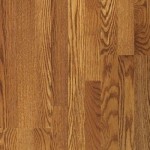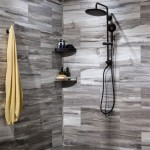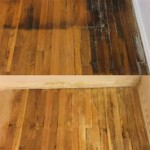Is Timber Flooring Good? Essential Considerations
Timber flooring has become increasingly popular in homes and businesses alike due to its aesthetic appeal, durability, and environmental credentials. However, before you make the decision to install timber flooring, it's essential to consider its pros and cons. In this article, we will explore the essential aspects of timber flooring to help you make an informed choice.
Pros of Timber Flooring
1. Beauty and Elegance
Timber flooring adds warmth and sophistication to any space. The natural variations in color and grain patterns create a unique and captivating look that cannot be replicated by other flooring materials. Timber floors complement both traditional and modern design styles, making them a versatile choice for any décor.
2. Durability and Longevity
Timber flooring is exceptionally durable and can withstand heavy foot traffic and wear and tear. With proper maintenance, it can last for decades, making it a long-term investment for your home or business. The hard-wearing nature of timber makes it ideal for areas with high levels of activity, such as living rooms, hallways, and kitchens.
3. Environmental Friendliness
Timber is a sustainable and environmentally friendly material. It is a renewable resource that is harvested from managed forests. Choosing timber flooring helps support responsible forestry practices and reduces the use of harmful chemicals and synthetics in your home.
Cons of Timber Flooring
1. Cost
Timber flooring is generally more expensive than other types of flooring, such as laminate or vinyl. The cost of installation can also be significant, depending on the size of the area and the complexity of the design. However, the durability and aesthetic appeal of timber flooring make it a worthwhile investment in the long run.
2. Maintenance
While timber flooring is durable, it does require regular maintenance to keep it looking its best. This includes sweeping, vacuuming, and mopping with a cleaning solution specifically designed for wood floors. Timber floors should also be resealed every few years to protect them from moisture and wear.
3. Water Resistance
Timber is naturally porous, making it susceptible to moisture damage. While sealed timber floors are water-resistant, they should not be exposed to standing water for extended periods. Spills should be cleaned up immediately, and the floor should be dried thoroughly to prevent warping or buckling.
Conclusion
Whether or not timber flooring is good for you depends on your individual needs, preferences, and budget. If you are looking for a durable, beautiful, and environmentally friendly flooring option that will add value to your home or business, timber flooring is an excellent choice. However, if you are on a tight budget or concerned about maintenance, there are other flooring materials that may be more suitable.
Ultimately, the best way to decide if timber flooring is right for you is to visit a flooring showroom and compare different types of flooring. This will allow you to see the materials in person, assess their quality, and make an informed decision that meets your specific requirements.

Types Of Hardwood Floors The Home Depot

Timber Flooring Transform Your Space With Elegance

Timber Flooring Cladding Grades Explained Havwoods Au

Best Flooring To Put In Your New Home Popular Types Of Floor Coverings

Best Timber Floor Finishes For 2024 Beyond

Types Of Hardwood Floors The Home Depot

How Not To Install Engineered Timber Flooring Tassie Oak Part 1

How To Care For Polished Timber Floors Living

How Long Does Timber Flooring Last Cb Floors

Engineered Vs Laminate Floor Head To Forbes Home
Related Posts








